Indigenous Governance Database
constitutional reform process
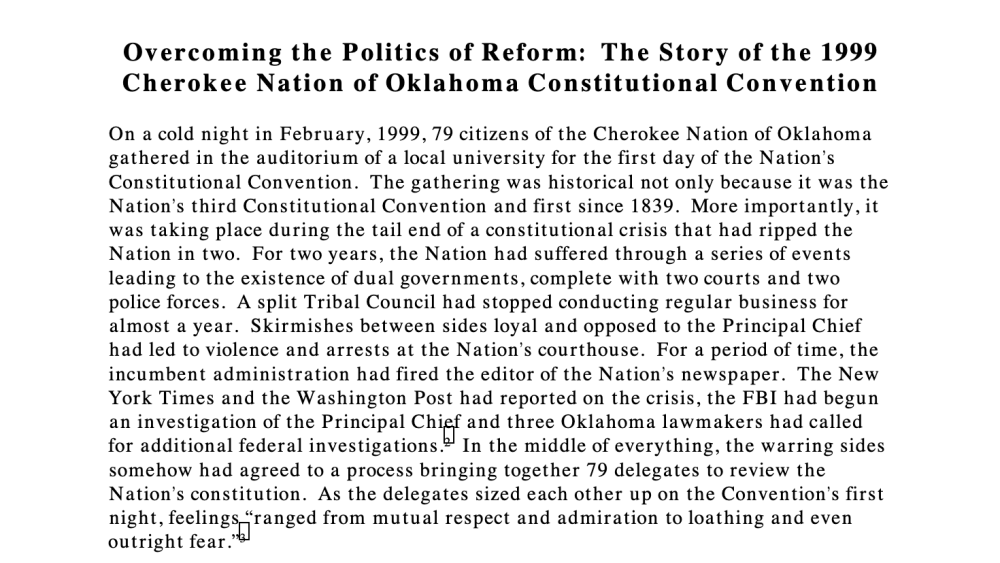
Overcoming the Politics of Reform: The Story of the 1999 Cherokee Nation of Oklahoma Constitutional Convention
A pressing international challenge is developing processes of constitution-making that manage the politics of reform and produce legitimate and effective constitutions. This challenge is of special concern for numerous American Indian nations that have been embroiled in dual governments and…
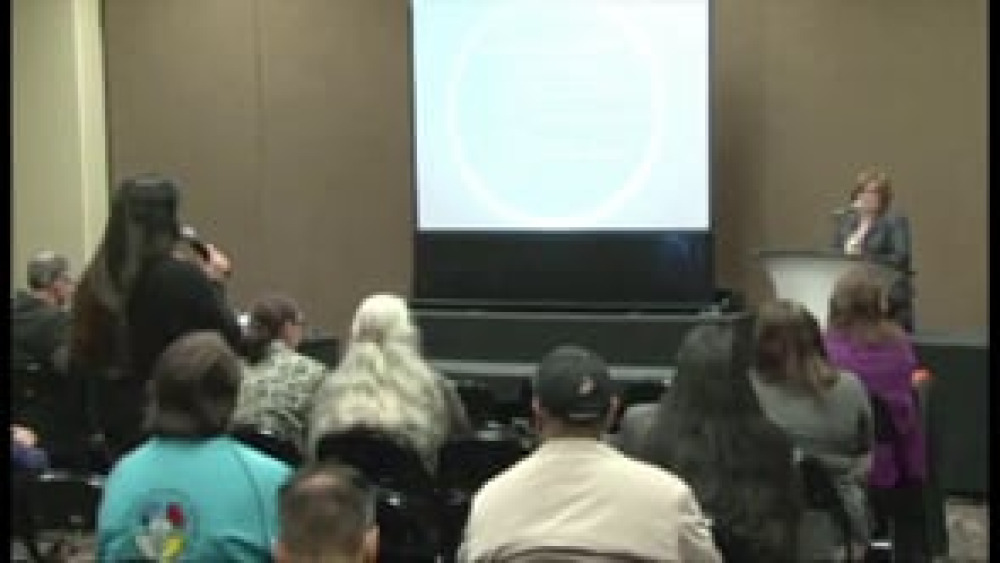
Jim Gray and Patricia Riggs: Citizen Engagement: The Key to Establishing and Sustaining Good Governance (Q&A)
Presenters Jim Gray and Patricia Riggs field questions from audience members about the approaches their nations took and are taking to engage their citizens and seed community-based, lasting change. In addition, session moderator Ian Record offers a quick overview of some effective citizen…
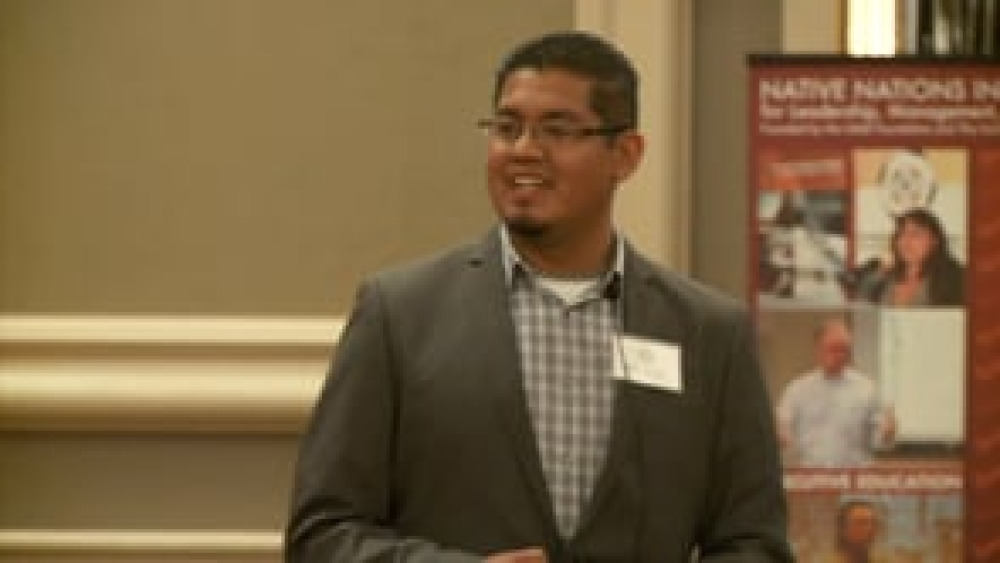
Andrew Martinez: Constitutional Reform: The Secretarial Election Process
Native Nations Institute's Andrew Martinez (Salt River Pima-Maricopa Indian Community) gives participants a concise and informative overview of how the secretarial election process works when Native nations amend their constitutions, and what happens (and doesn't) when Native nations remove…
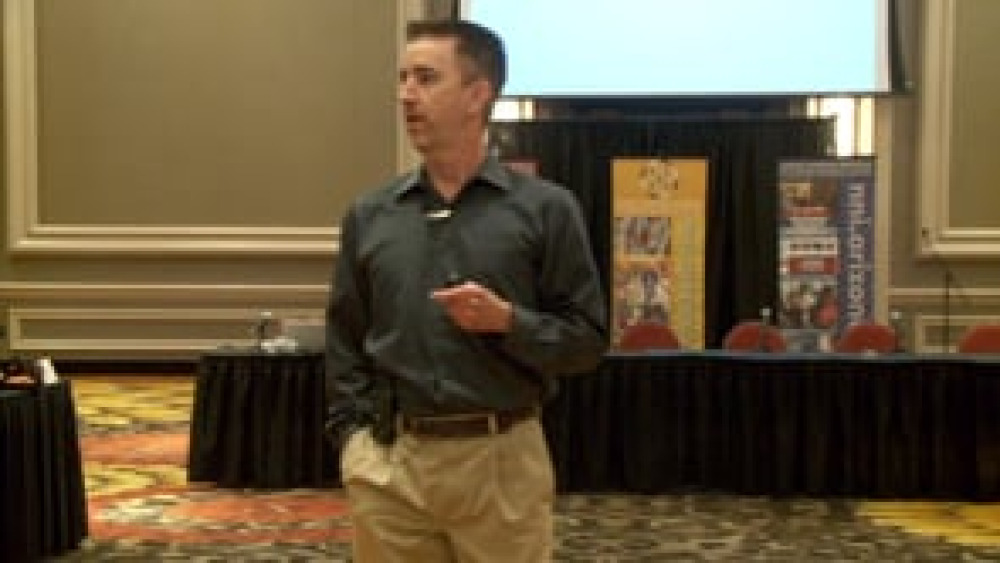
Ian Record: Some of the Difficulties of Constitutional Reform (Presentation Highlight)
In this highlight from the presentation "Defining Constitutions and the Movement to Remake Them," Ian Record discusses two of the many challenges that Native nations typically encounter when they move to change their existing constitutions or develop new ones.
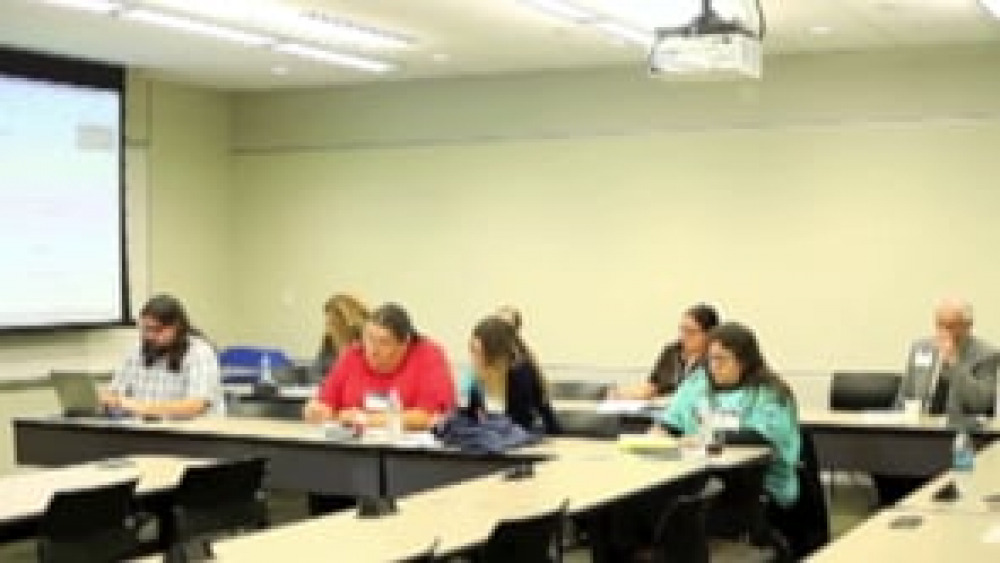
Good Native Governance Break Out 3: Tribal Constitutional Revitalization
UCLA School of Law "Good Native Governance" conference presenters, panelists and participants Melissa L. Tatum, Devon Lee Lomayesva, and Jill Doerfler discuss constitutional reform efforts. Melissa describes the purpose of consitutions. Using her own Nation's experience, Devon discusses the Iipay…
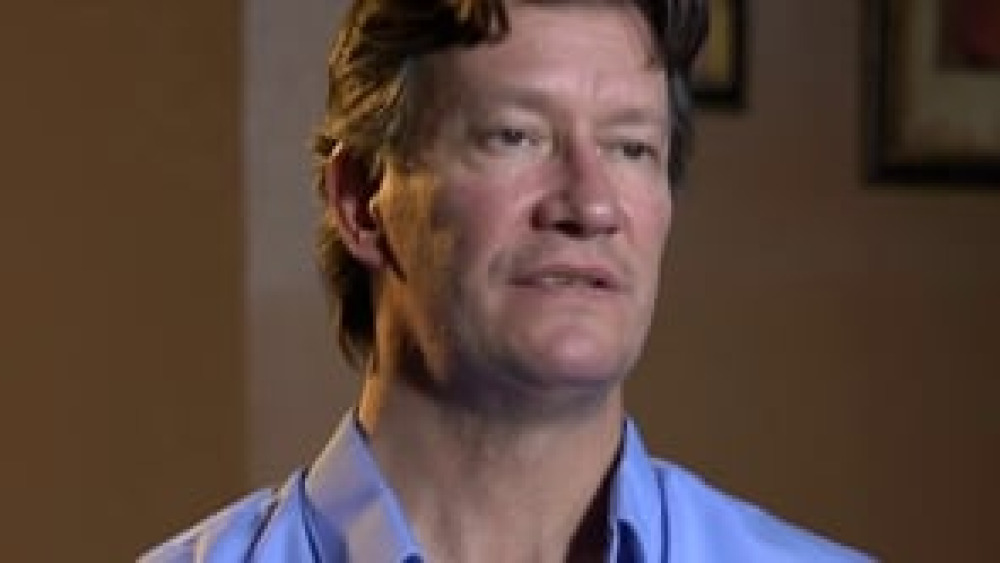
Native Leaders: The Purpose and Challenge of Redefining Citizenship
Several Native leaders share their thoughts on why their nations are deliberating potential changes to their citizenship criteria, and they discuss some of the many challenges that Native nations face in this complex area of governance.
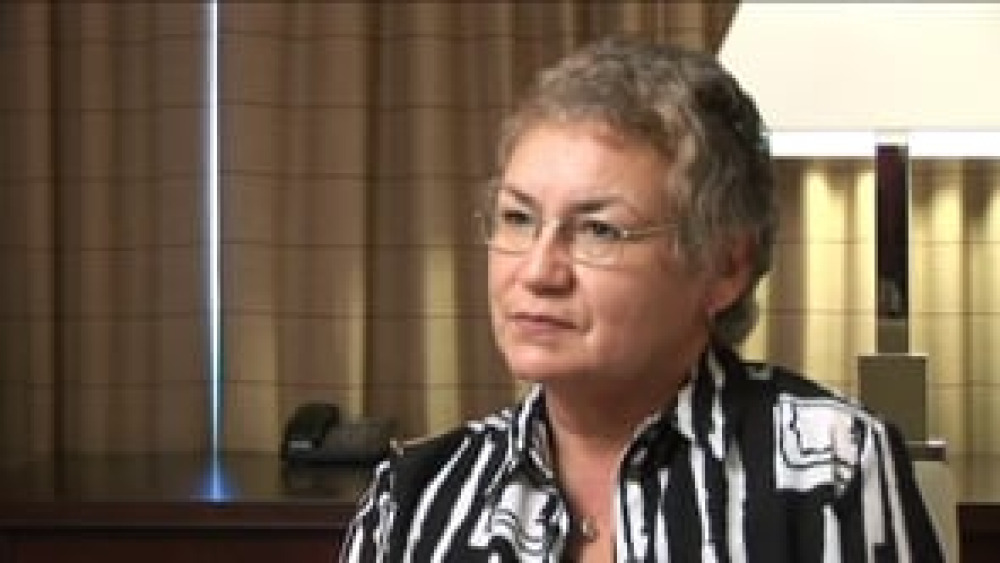
Sophie Pierre: Enacting Self-Determination and Self-Governance at Ktunaxa
In this informative interview with NNI's Ian Record, Sophie Pierre, longtime chief of the Ktunaxa Nation, discusses Ktunaxa's ongoing effort to reclaim and redesign their system of governance through British Columbia's treaty process, specifically Ktunaxa's citizen-led process to develop a new…
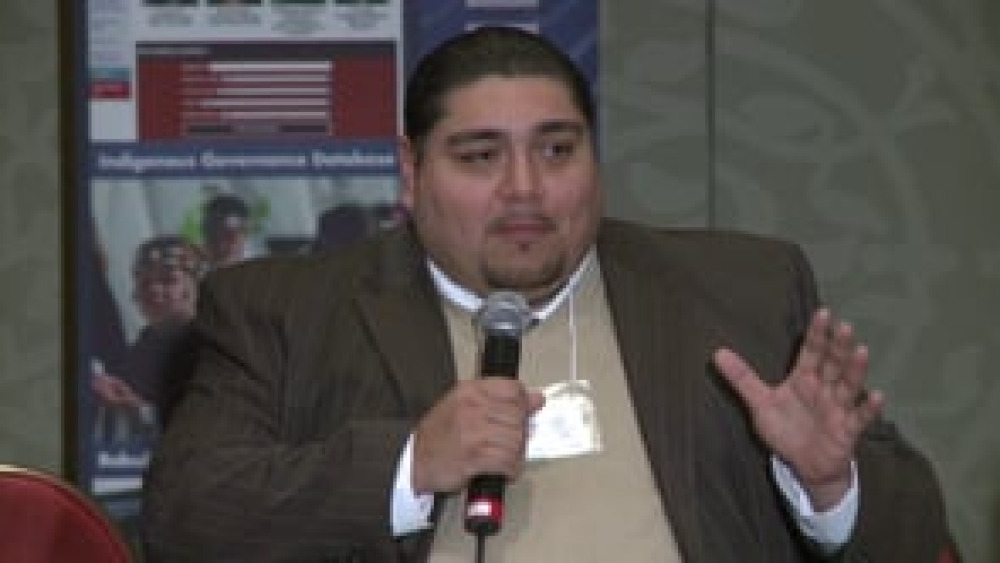
Constitutions and Constitutional Reform - Day 2 (Q&A)
Presenters from the second day of NNI's "Tribal Constitutions" seminar gather to field questions from seminar participants on a variety of topics ranging from citizen education and engagement to the role off-reservation citizens can and should play in a Native nation's present and future.
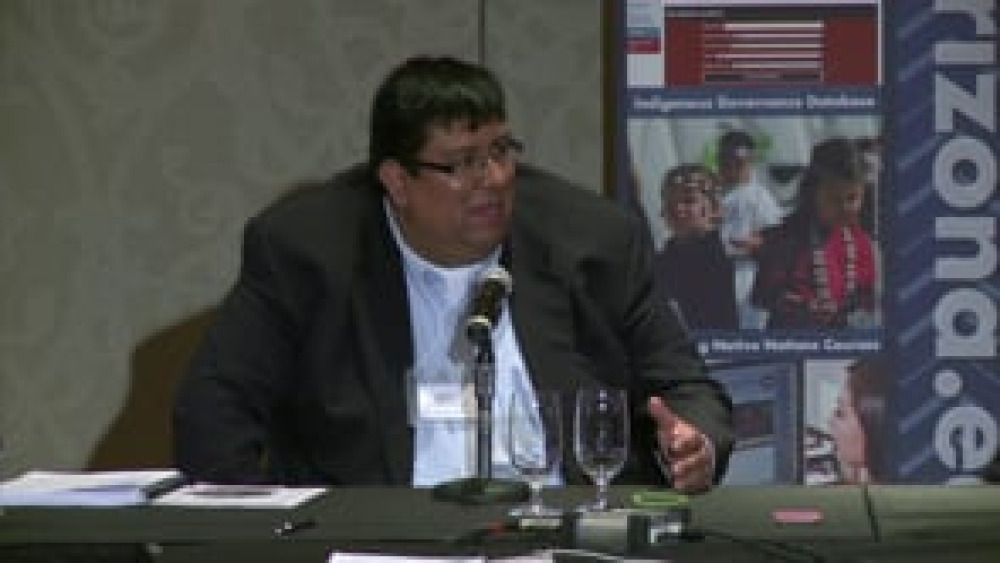
Anthony Hill and Angela Wesley: The Process of Constitutional Reform: The Challenge of Citizen Engagement (Q&A)
Presenters Anthony Hill and Angela Wesley field questions from the audience about the approaches their nations took to constitutional reform.
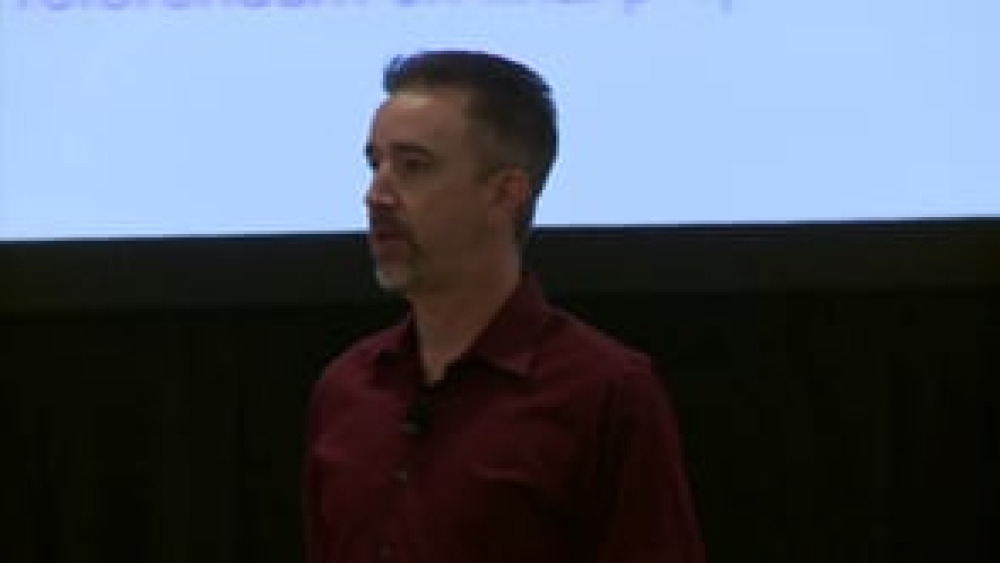
Ian Record: Setting the Focus and Providing the Context: Critical Constitutional Reform Tasks (Presentation Highlight)
In this highlight from the presentation "The Process of Constitutional Reform: The Challenge of Citizen Engagement," NNI's Ian Record lays out two critical overarching tasks that those charged with leading a nation's constitutional reform effort must undertake.
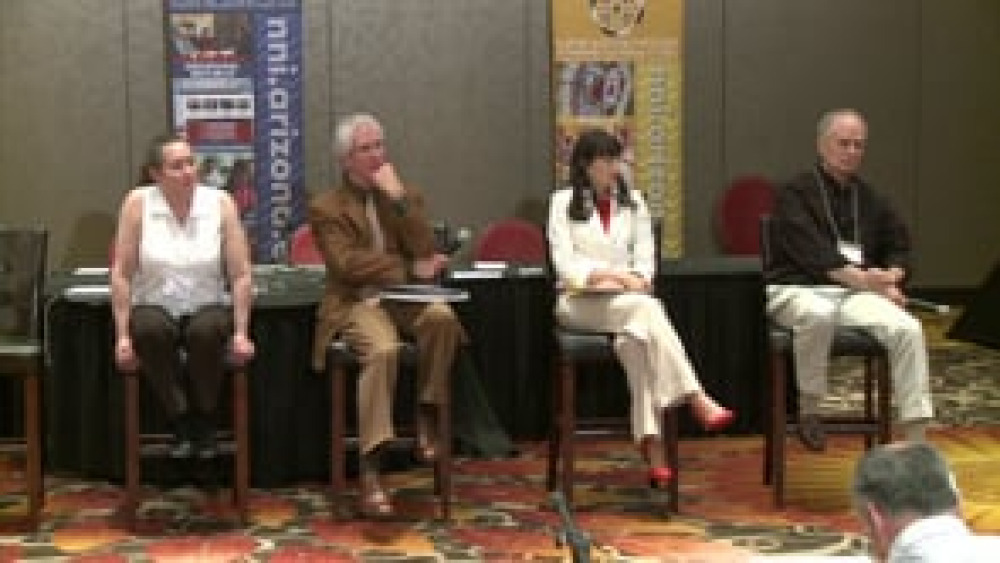
Constitutions and Constitutional Reform - Day 1 (Q&A)
Presenters and moderators from the first day of NNI's "Tribal Constitutions" seminar gather to field questions from seminar participants on a variety of topics ranging from dual citizenship to the relationship between a nation's constitution and its economic development environment.
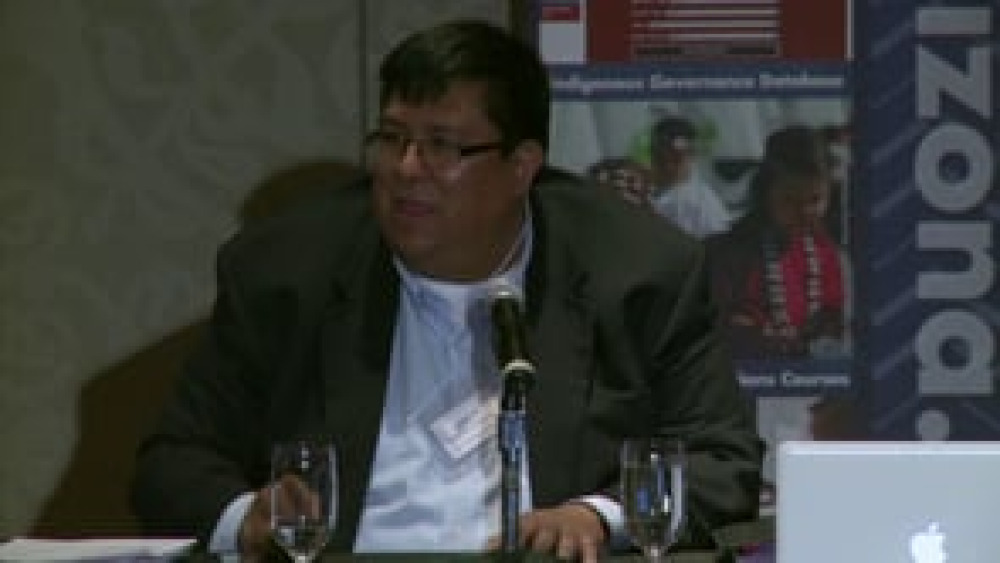
Anthony Hill: Constitutional Reform on the Gila River Indian Community
Gila River Indian Community (GRIC) Chief Judge Anthony Hill, who served as Chair of the Gila River Constitutional Reform Team, discusses the reform process that GRIC followed, the current state of GRIC's reform effort, and what he sees as lessons learned from Gila River's experience.
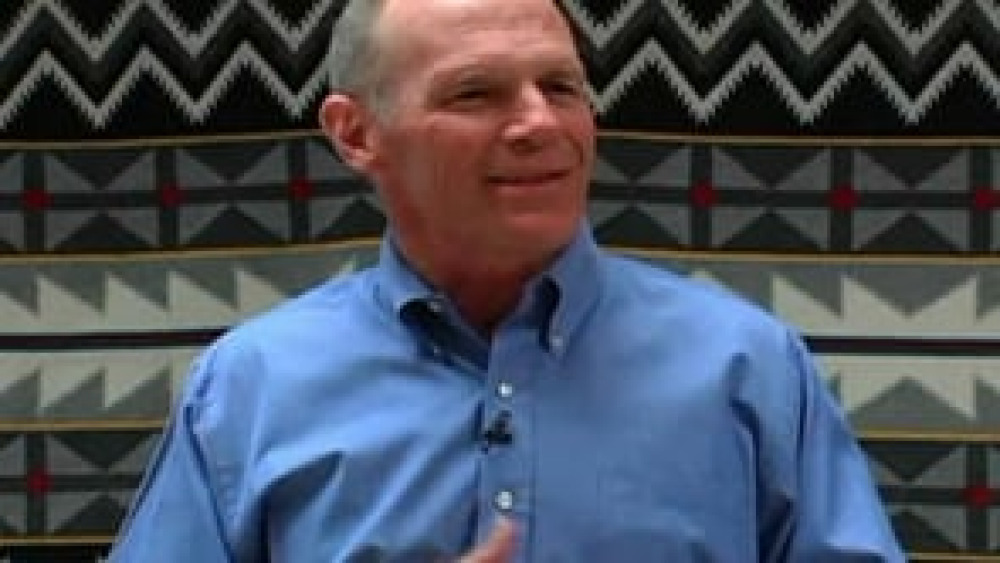
From the Rebuilding Native Nations Course Series: "The Citizen Potawatomi Nation's Path to Self-Determination"
Professor Joseph P. Kalt describes the dramatic rebirth of the Citizen Potawatomi Nation, citing its development of capable governance as the key to its economic development success.
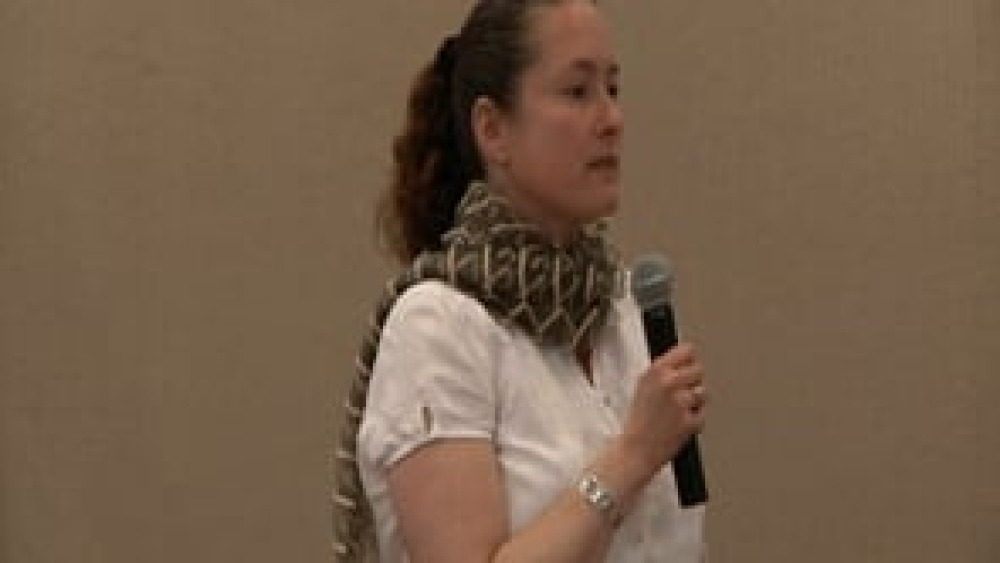
Miriam Jorgensen: Organizing the Reform Process
NNI Director of Research Miriam Jorgensen shares what she sees as some of the critical keys to Native nations' efforts to develop and implement effective constitutional reform processes. This video resource is featured on the Indigenous Governance Database with the permission of…
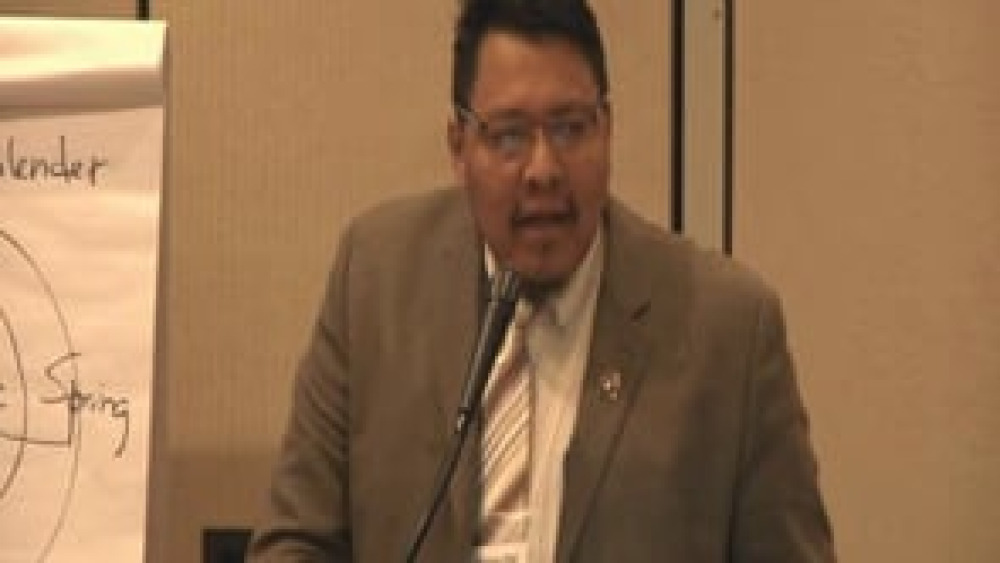
Darrin Old Coyote: Reforming the Apsaalooke (Crow) Nation's Governing System: What Did We Do and Why Did We Do It?
Vice Secretary Darrin Old Coyote of the Crow Tribe's Executive Branch provides a brief history of the Crow Tribe's governance system, and explains the factors that prompted the Tribe to abandon its governance system in 2001 and replace it with a new constitution and system of government…
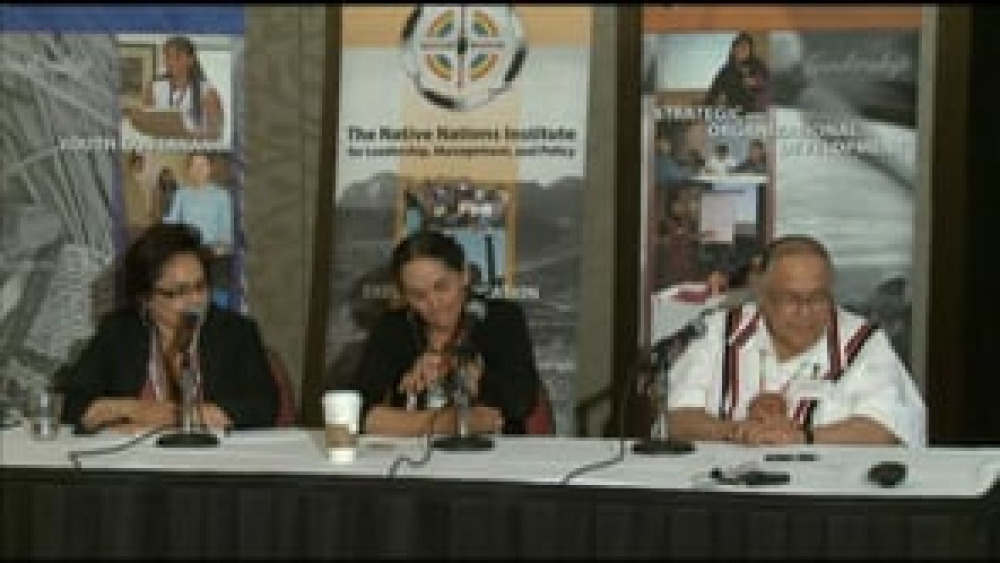
Frank Ettawageshik and Gwen Phillips: Reforming Our Nations' Constitutions: What We Did and Why (Q&A)
Frank Ettawageshik, former Chairman of the Little Traverse Bay Bands of Odawa Indians, and Gwen Phillips, Ktunaxa Nation Director of Corporate Services and Governance Transition, field questions from the audience about their presentations detailing how their nations either reformed or are in…
Julia Coates: The Process of Constitutional Reform: What the Cherokee Nation Did and Why
Cherokee Nation Councilor Julia Coates presents an overview of the constitutional history of the Cherokee Nation, and chronicles the process the Cherokee Nation followed to reform its constitution in 1999.
Joan Timeche and Joseph P. Kalt: The Process of Constitutional Reform: Key Issues and Cases to Consider
Joan Timeche and Joseph P. Kalt share two stories of constitutional reform processes undertaken by Native nations and discuss what factors spurred or impeded the ultimate success of those efforts.
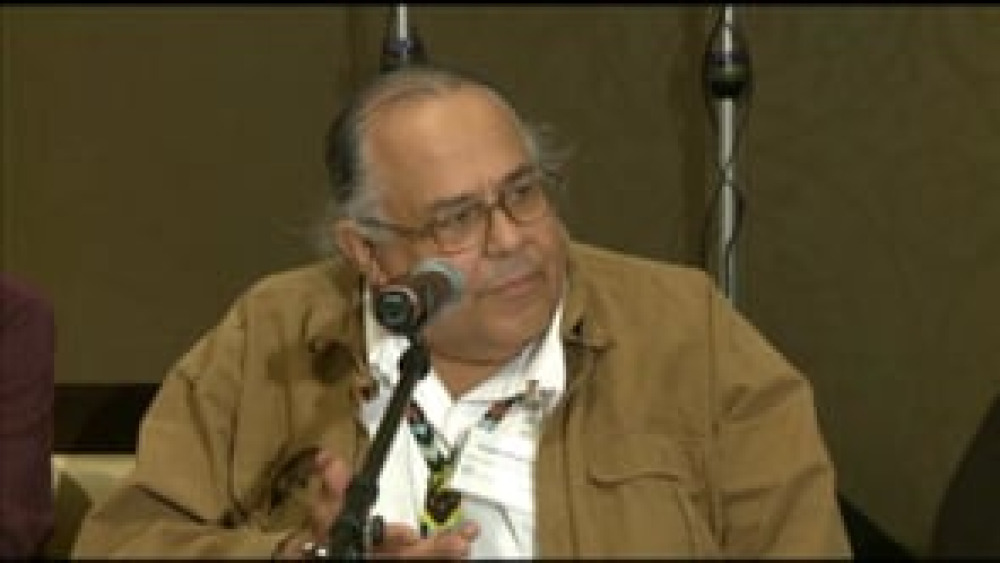
Constitutional Reform: A Wrap-Up Discussion (Q&A)
NNI "Tribal Constitutions" seminar presenters, panelists and participants Robert Breaker, Julia Coates, Frank Ettawageshik, Miriam Jorgensen, Gwen Phillips, Ian Record, Melissa L. Tatum and Joan Timeche field questions from the audience about separations of powers, citizenship, blood quantum and…
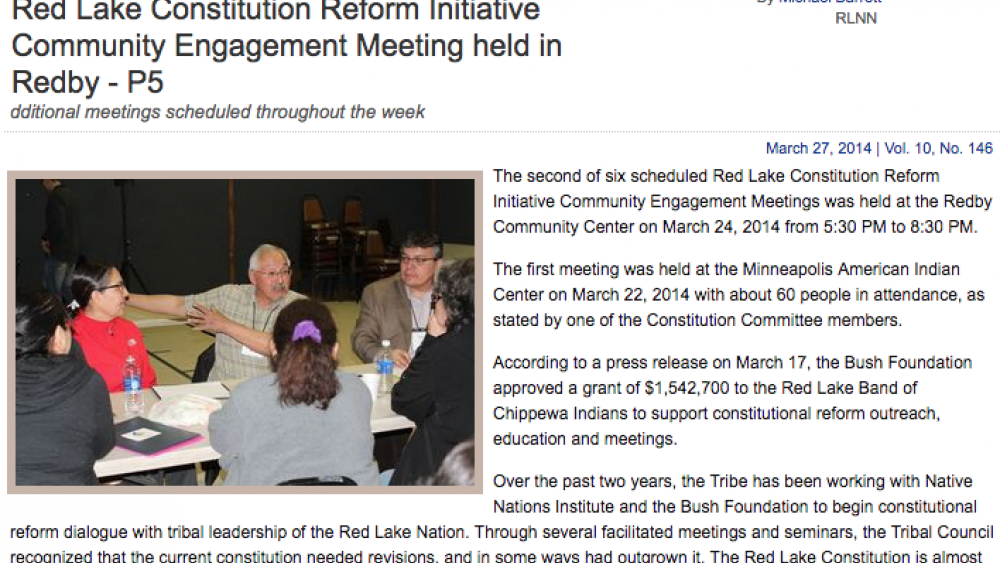
Red Lake Constitution Reform Initiative Community Engagement Meeting held in Redby
The second of six scheduled Red Lake Constitution Reform Initiative Community Engagement Meetings was held at the Redby Community Center on March 24, 2014 from 5:30 PM to 8:30 PM. The first meeting was held at the Minneapolis American Indian Center on March 22, 2014 with about 60 people in…
